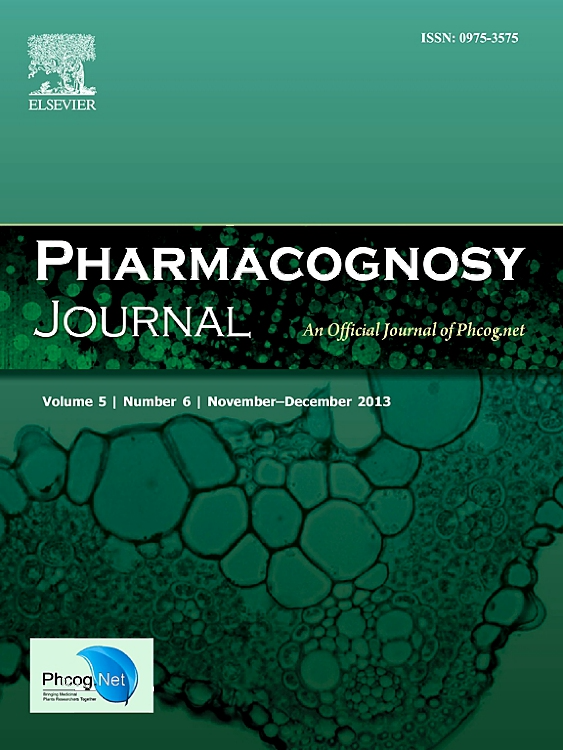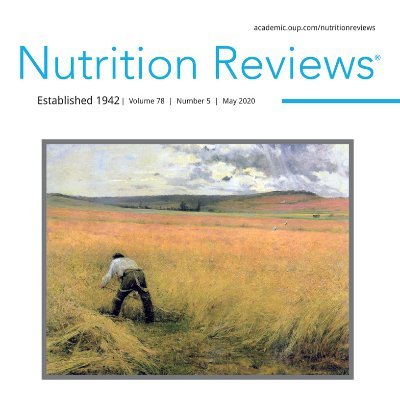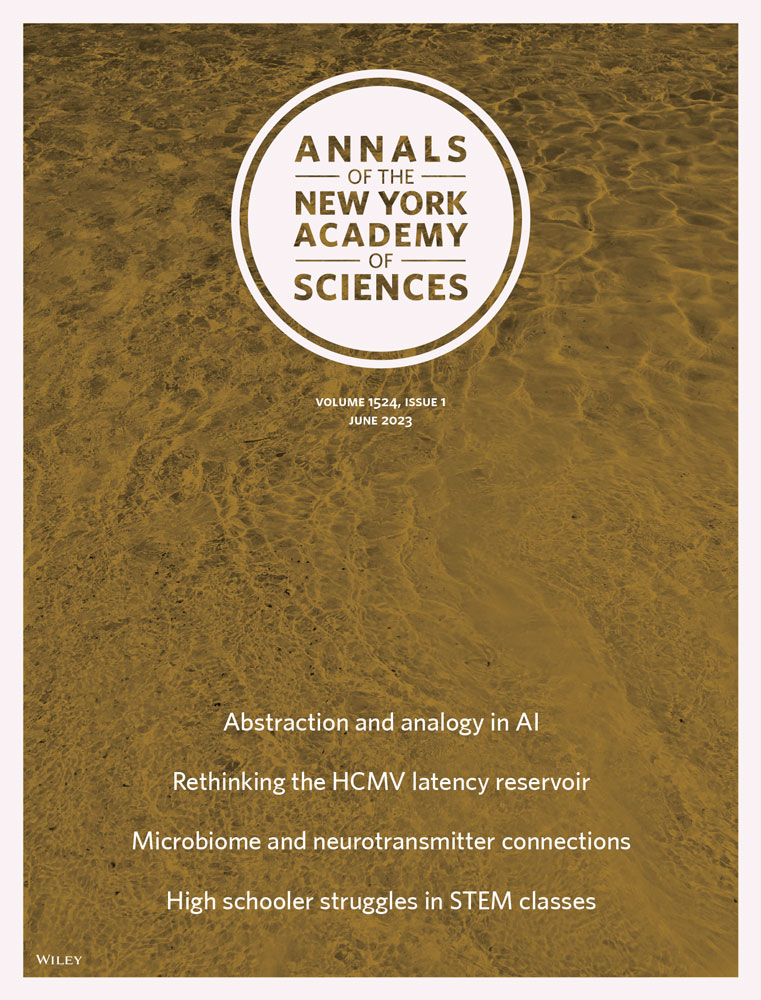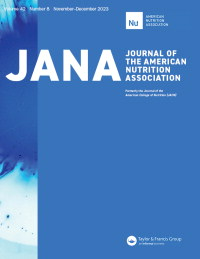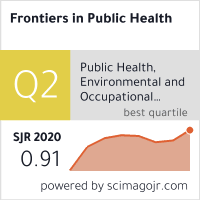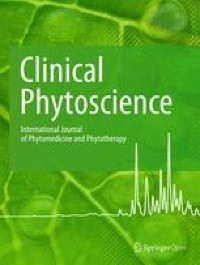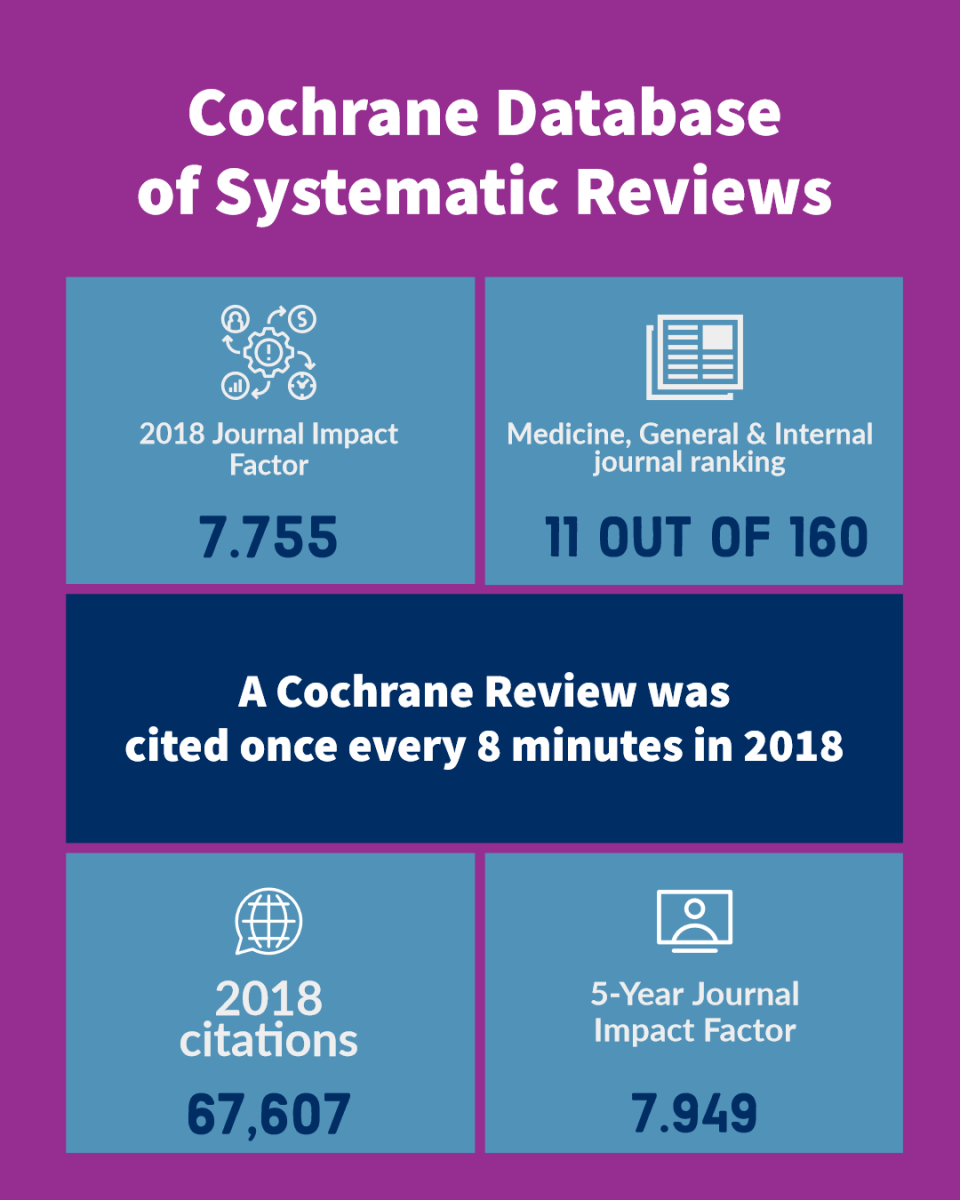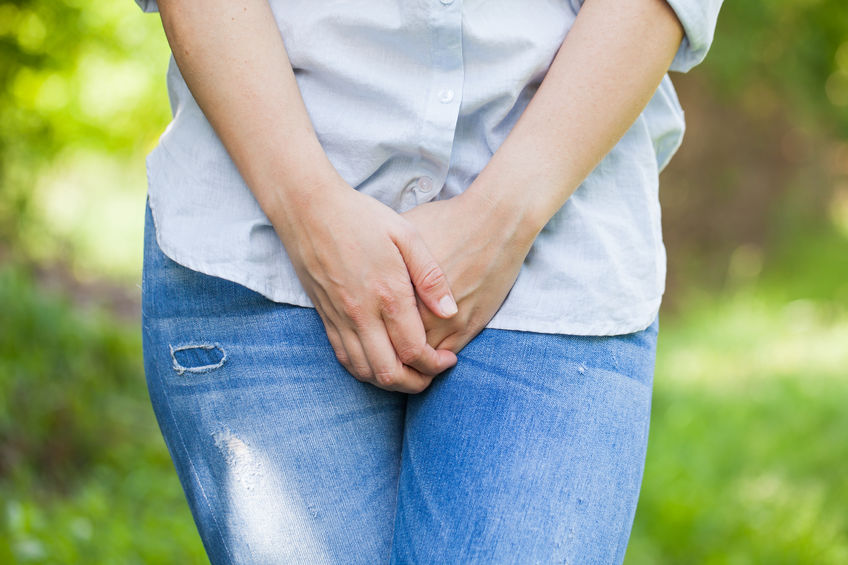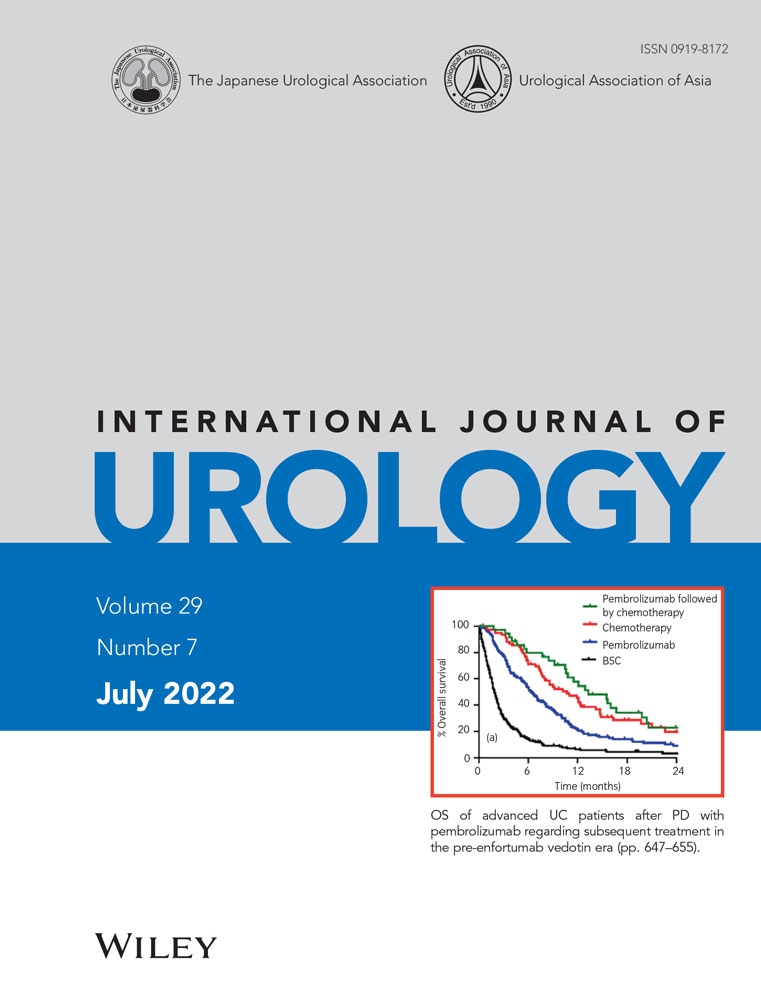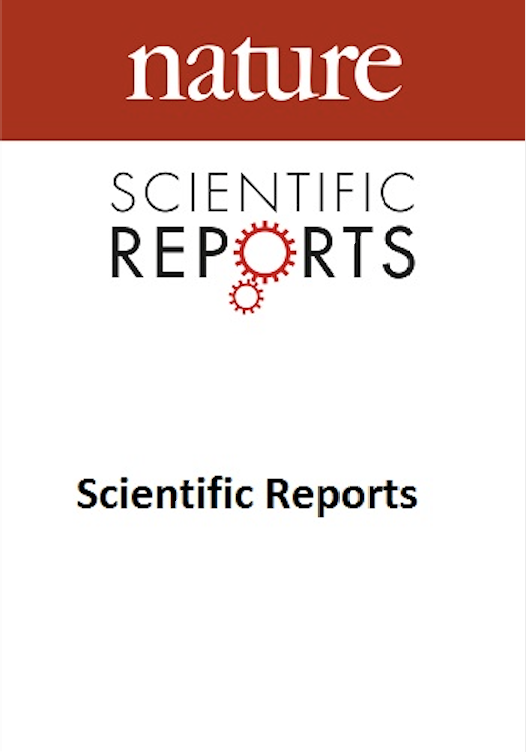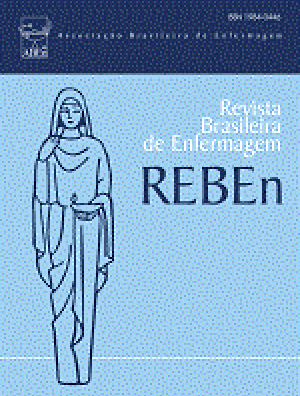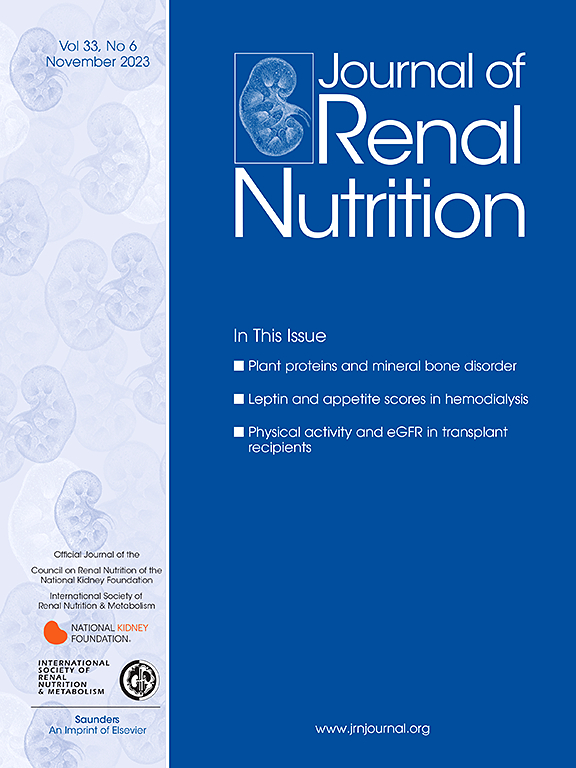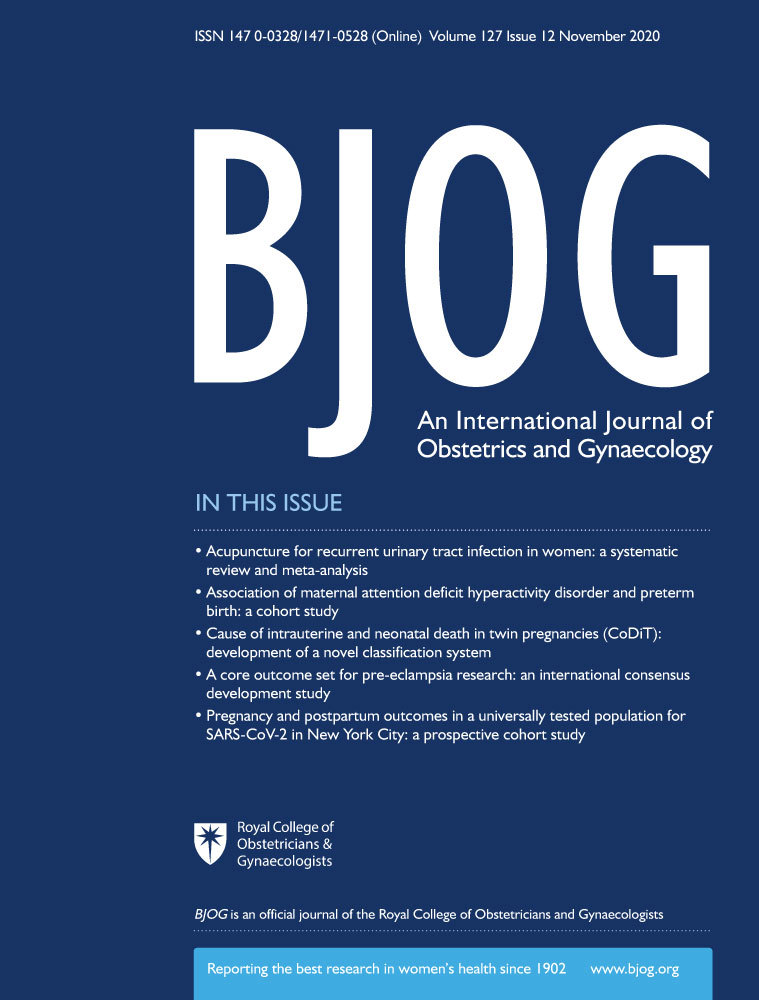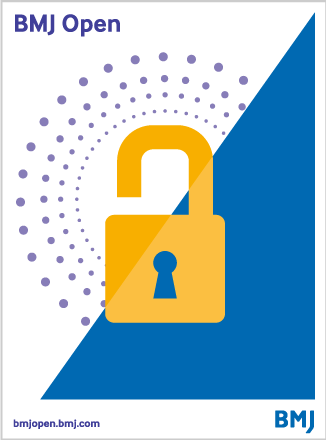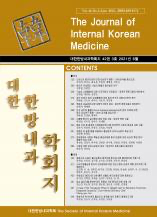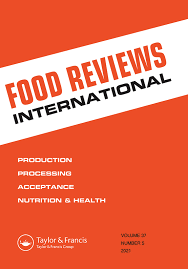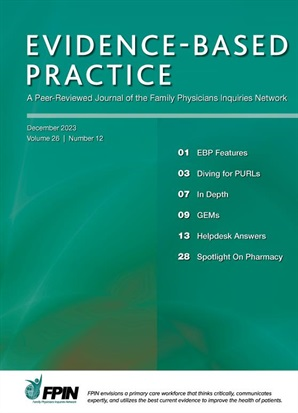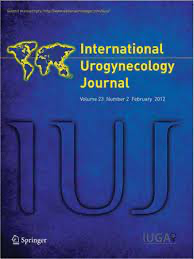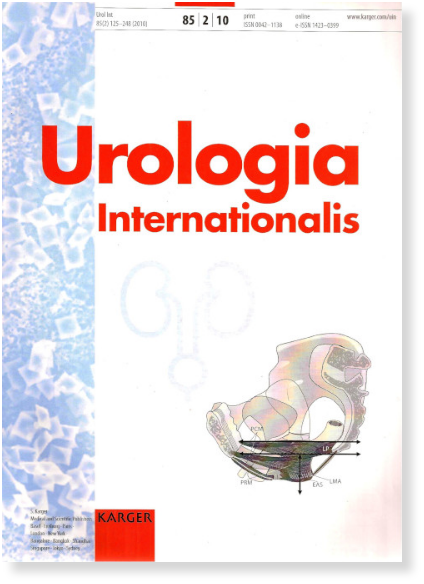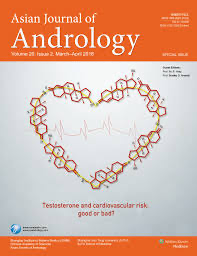Presentation Slides
Chinese Medicine Research Hub
Experimental Study
Jian-Pi-Yi-Shen formula has shown potential in delaying kidney deterioration in chronic kidney disease by rejuvenating the process of creating nicotinamide adenine dinucleotide.
2023 Aging Jian-Pi-Yi-Shen formula alleviates renal fibrosis by restoring NAD+ biosynthesis in vivo and in vitro
Gao L, Huang X, Deng R, Wu S, Peng Y, Xiong G, Lu J, Liu X
Chinese Medicine Research Hub
Experimental Study
The herbal decoction Jian-Pi-Yi-Shen reduces symptoms of chronic kidney disease and anaemia by improving iron metabolism and inhibiting the JAK2-STAT3 signaling pathway.
2023 Journal of Ethnopharmacology Jian-Pi-Yi-Shen formula restores iron metabolism from dysregulation in anemic rats with adenine-induced nephropathy
Li C, Huang H, Wang R, Zhang C, Huang S, Wu J, Mo P, Yu H, Li S, Chen J
Chinese Medicine Research Hub
Review Article
Berry fruits such as blueberries, cranberries, raspberries, and strawberries could potentially improve gut microbiota and reverse dysbiosis in chronic kidney disease patients.
2023 Nutrition Reviews Blueberry, cranberry, raspberry, and strawberry as modulators of the gut microbiota: target for treatment of gut dysbiosis in chronic kidney disease? From current evidence to future possibilities
Coutinho-Wolino KS, Melo MFS, Mota JC, Mafra D, Guimarães JT, Stockler-Pinto MB
Chinese Medicine Research Hub
Experimental Study
Avocado oil appears to have a protective impact on the prostatic epithelium of Wistar rats subjected to induced prostate enlargement.
2023 Journal of the American Nutrition Association Avocado Oil (
Persea americana
) Reduces Epithelial Proliferation on Benign Prostatic Hyperplasia
da Silva VAP, Abboud RS, Contreiras EC, Boaventura GT, Chagas MA
Chinese Medicine Research Hub
Review Article
Various traditional Chinese medicine treatment strategies could potentially provide an effective alternative in slowing the progression of Chronic Kidney Disease.
2022 Frontiers in Pharmacology Traditional Chinese Medicine in the Treatment of Chronic Kidney Diseases: Theories, Applications, and Mechanisms
Yunlai Wang, Ye Feng, Manman Li, Mo Yang, Gaoxiang Shi, Zihua Xuan, Dengke Yin, Fan Xu
Chinese Medicine Research Hub
Network Pharmacology
The Jian Pi Yi Shen formula in traditional Chinese medicine demonstrates a protective effect on kidneys by modulating tryptophan metabolism and Aryl hydrocarbon receptor activation.
2022 Frontiers in Pharmacology Jian-Pi-Yi-Shen Formula Improves Adenine-Induced Chronic Kidney Disease via Regulating Tryptophan Metabolism and Aryl Hydrocarbon Receptor Signaling
Liu X, Deng R, Chen Y, Huang S, Lu J, Zheng L, Xiong G, Li S
Chinese Medicine Research Hub
Meta-Analysis
Pumpkin seed extract treatment could potentially offer symptomatic relief for patients experiencing moderate lower urinary tract symptoms suggestive of benign prostate hyperplasia.
2022 Clinical Phytoscience Beneficial effects of pumpkin seed soft extract on lower urinary tract symptoms and quality of life in men with benign prostatic hyperplasia: a meta-analysis of two randomized, placebo-controlled trials over 12 months
Vahlensieck W, Heim S, Patz B, Sahin K
Chinese Medicine Research Hub
Cohort Study
Chinese herbal medicine can significantly reduce the risks of complications and need for surgery associated with benign prostatic hyperplasia.
2022 International Journal of Urology Effects of Chinese herbal medicine in patients with benign prostatic hyperplasia: A nationwide cohort study in Taiwan
Ou SC, Huang ST, Lin MC, Chen WC, Huang CP, Lin HJ
Chinese Medicine Research Hub
Network Pharmacology
Luteolin, a component of traditional Chinese medicine herb Zi Su Ye, has been found to alleviate kidney disease stage 3-5 by reducing renal tubular epithelial cell apoptosis.
2021 Frontiers in Pharmacology Exploring the Critical Components and Therapeutic Mechanisms of Perilla frutescens L. in the Treatment of Chronic Kidney Disease via Network Pharmacology
Yong C, Zhang Z, Huang G, Yang Y, Zhu Y, Qian L, Tian F, Liu L, Wu Q, Xu Z, Chen C, Zhao J, Gao K, Zhou E
Chinese Medicine Research Hub
Randomised Controlled Trial
Pumpkin seed oil can alleviate symptoms of benign prostatic hyperplasia with no side effects, though not as efficiently as tamsulosin.
2021 BMC Urology Pumpkin seed oil (Cucurbita pepo) versus tamsulosin for benign prostatic hyperplasia symptom relief: a single-blind randomized clinical trial
Zerafatjou N, Amirzargar M, Biglarkhani M, Shobeirian F, Zoghi G
Chinese Medicine Research Hub
Cohort Study
Lower testosterone levels in aging men correlate with a larger prostate volume.
2021 Scientific Reports Relationship between serum total testosterone and prostate volume in aging men
Xia BW, Zhao SC, Chen ZP, Chen C, Liu TS, Yang F, Yan Y
Chinese Medicine Research Hub
Systematic Review
Acupuncture can effectively improve the post voided residual urine, maximal cystometric capacity, and bladder capacity for first voiding desire values of patients with urinary retention after hysterectomy.
2021 Medicine Efficacy and safety of acupuncture for urinary retention after hysterectomy
Zhao Q, Yan C, Dan M, Jia H
Chinese Medicine Research Hub
Experimental Study
The Jian-Pi-Yi-Shen (JPYS) traditional Chinese medicine formula aids in the alleviation of renal dysfunction and fibrosis in chronic kidney disease (CKD) rats by combating inflammation and cellular apoptosis.
2021 Frontiers in Pharmacology Jian-Pi-Yi-Shen Formula Ameliorates Oxidative Stress, Inflammation, and Apoptosis by Activating the Nrf2 Signaling in 5/6 Nephrectomized Rats
Zhou F, Zou X, Zhang J, Wang Z, Yang Y, Wang D
Chinese Medicine Research Hub
Experimental Study
Extra virgin olive oil high in minor polar compounds significantly improves kidney function, reduces oxidative stress, inflammation, and ultimately benefits the body composition.
2021 Nutrients Usefulness of Extra Virgin Olive Oil Minor Polar Compounds in the Management of Chronic Kidney Disease Patients
Noce A, Marrone G, Urciuoli S, Di Daniele F, Di Lauro M, Pietroboni Zaitseva A, Di Daniele N, Romani A
Chinese Medicine Research Hub
Systematic Review
Acupuncture has a positive effect in improving quality of life, fatigue and sleep in patients with chronic kidney disease.
2021 The Brazilian Journal of Nursing Effects of acupuncture in patients with chronic kidney disease: a systematic review
Melo GAA, Aguiar LL, Silva RA, Pereira FGF, Silva FLBD, Caetano JÁ.
Chinese Medicine Research Hub
Systematic Review
Consuming coffee is associated with lower risks of developing chronic kidney disease, reaching end-stage kidney disease, and having albuminuria.
2021 Journal of Renal Nutrition Effect of Coffee Consumption on Renal Outcome: A Systematic Review and Meta-Analysis of Clinical Studies
Kanbay M, Siriopol D, Copur S, Tapoi L, Benchea L, Kuwabara M, Rossignol P, Ortiz A, Covic A, Afsar B
Chinese Medicine Research Hub
Animal Study
Jian-Pi-Yi-Shen, a traditional Chinese medicine, helps treat anemia in chronic kidney disease by stimulating erythropoietin production and regulating iron recycling.
2020 Evidence-Based Complementary and Alternative Medicine Jian-Pi-Yi-Shen Regulates EPO and Iron Recycling Protein Expressions in Anemic Rats with Chronic Kidney Disease: Accumulation of Hypoxia Inducible Factor-2α via ERK Signaling
Wang F, Yu H, Huang S, Zheng L, Zheng P, Zhang S, Li S, Chen J
Chinese Medicine Research Hub
Systematic Review
Acupuncture appeared to be beneficial for treatment and prophylaxis of recurrent urinary tract infections.
2020 BJOG: An International Journal of Obstetrics & Gynaecology Acupuncture for recurrent urinary tract infection in women: a systematic review and meta‐analysis
Qin X, Coyle ME, Yang L, Liang J, Wang K, Guo X, Zhang AL, Mao W, Lu C, Xue CC, Liu X
Chinese Medicine Research Hub
Randomised Controlled Trial
Consuming walnuts daily can reduce cardiovascular risk factors in chronic kidney disease patients without altering significant physiological levels.
2019 Nutrients A Pilot Randomized Crossover Trial Assessing the Safety and Short-Term Effects of Walnut Consumption by Patients with Chronic Kidney Disease
Sanchis P, Molina M, Berga F, Muñoz E, Fortuny R, Costa-Bauzá A, Grases F, Buades JM
Chinese Medicine Research Hub
Systematic Review
Meta-analysis showed that acupuncture was comparable to drugs in the reduction of overactive bladder symptoms.
2019 Acupuncture in Medicine Acupuncture for overactive bladder in adults: a systematic review and meta-analysis
Mak TC, Chen HY, Cho WC
Chinese Medicine Research Hub
Systematic Review
Chinese herbal medicine may be effective and safe for treating diabetic kidney disease, although evidence quality varies.
2019 BMJ Open Chinese herbal medicine for diabetic kidney disease: a systematic review and meta-analysis of randomised placebo-controlled trials
Zhang L, Yang L, Shergis J, Zhang L, Zhang AL, Guo X, Qin X, Johnson D, Liu X, Lu C, Xue CC, Mao W
Chinese Medicine Research Hub
Experimental Study
The Jian-Pi-Yi-Shen Formula (JPYSF) has been found to significantly improve chronic kidney disease, potentially through the modulation of the mitochondrial quality control network.
2018 BMC Complementary Medicine and Therapies Jian-Pi-Yi-Shen Formula ameliorates chronic kidney disease: involvement of mitochondrial quality control network
Liu X, Chen J, Liu X, Wang D, Zheng P, Qi A, Yi T, Li S
Chinese Medicine Research Hub
Systematic Review
Moxibustion was found to be an effective and safe treatment improving symptoms and quality of life in patients with Benign Prostatic Hyperplasia.
2018 The Journal of Internal Korean Medicine Moxibustion for Benign Prostatic Hyperplasia: A Systematic Review and Meta-analysis
Bae G, Lee S, Hong J, Lee I, Kim S, Choi J, Han C, Yun Y, Park S, Kwon J
Chinese Medicine Research Hub
Review Article
Pumpkin seed oil appears effective for improving men's health conditions such as enlarged prostate, overactive bladder, and hair loss due to its anti-inflammatory properties and radical scavenging.
2018 Food Reviews International The beneficial effects of Pumpkin (Cucurbita pepoL.) seed oil for health condition of men
Ramak P, Mahboubi M
Chinese Medicine Research Hub
Randomised Controlled Trial
Pumpkin seed oil and pumpkin seeds can effectively reduce obstructive urinary symptoms in patients dealing with symptomatic benign prostatic hypertrophy, performing as well as saw palmetto and prazosin.
2018 Evidence-Based Practice Do pumpkin seeds or pumpkin supplements reduce symptoms of BPH?
Edwards R, Shadiack A
Chinese Medicine Research Hub
Systematic Review
Acupuncture might have effect in decreasing the number of micturition episodes, incontinence episodes, and nocturia episodes.
2018 Medicine Acupuncture for adults with overactive bladder: A systematic review and meta-analysis of randomized controlled trials
Zhao Y, Zhou J, Mo Q, Wang Y, Yu J, Liu Z.
Chinese Medicine Research Hub
Systematic Review
Acupuncture might have effect in decreasing the number of micturition episodes, incontinence episodes, and nocturia episodes.
2018 Medicine Acupuncture for adults with overactive bladder
Zhao Y, Zhou J, Mo Q, Wang Y, Yu J, Liu Z
Chinese Medicine Research Hub
Experimental Study
The Jian-Pi-Yi-Shen formula appears to slow down chronic kidney disease progression by inhibiting inflammation via the nuclear factor-kappa B signaling pathway.
2018 Evidence-Based Complementary and Alternative Medicine Jian‐Pi‐Yi‐Shen Formula Regulates Inflammatory Cytokines Production in 5/6 Nephrectomized Rats via Suppression of NF‐κB Activation
Lu J, Liu X, Liao Y, Wang D, Chen J, Li S
Chinese Medicine Research Hub
Systematic Review
Acupuncture can significantly improve urological symptoms in the short term for men with benign prostatic hyperplasia.
2017 PLOS One Acupuncture for benign prostatic hyperplasia: A systematic review and meta-analysis
Zhang W, Ma L, Bauer BA, Liu Z, Lu Y
Chinese Medicine Research Hub
Systematic Review
Acupuncture may be recommended for the treatment of chronic prostatitis/chronic pelvic pain syndrome with relatively rare incidence of adverse events.
2016 Scientific Reports Network Meta-Analysis of the Efficacy of Acupuncture, Alpha-blockers and Antibiotics on Chronic Prostatitis/Chronic Pelvic Pain Syndrome
Qin, Z., Wu, J., Tian, J. et al.
Chinese Medicine Research Hub
Systematic Review
Current evidence supports acupuncture as an effective treatment for chronic prostatitis/chronic pelvic pain syndrome-induced symptoms, particularly in relieving pain.
2016 Medicine Systematic Review of Acupuncture for Chronic Prostatitis/Chronic Pelvic Pain Syndrome
Qin Z, Wu J, Zhou J, Liu Z.
Chinese Medicine Research Hub
Review Article
Some comparative trials showed the benefit of acupuncture to be comparable with antimuscarinic treatment for overactive bladder.
2016 International Urogynecology Journal The role of acupuncture in managing overactive bladder; a review of the literature
Forde JC, Jaffe E, Stone BV, Te AE, Espinosa G, Chughtai B.
Chinese Medicine Research Hub
Systematic Review
Chinese herbal medicine may provide an effective treatment during the acute phase of UTI and when given prophylactically to prevent recurrence in the six months following treatment.
2015 Cochrane Database of Systematic Reviews Chinese herbal medicine for treating recurrent urinary tract infections in women
Flower A, Wang LQ, Lewith G, Liu JP, Li Q.
Chinese Medicine Research Hub
Systematic Review
We cautiously suggest that acupuncture therapy could demonstrate better clinical efficacy than pharmacological treatment or placebo treatment in treating nocturnal enuresis.
2015 Evidence-Based Complementary and Alternative Medicine Efficacy of Acupuncture in Children with Nocturnal Enuresis: A Systematic Review and Meta-Analysis of Randomized Controlled Trials
Lv ZT, Song W, Wu J, et al.
Chinese Medicine Research Hub
Experimental Study
Pomegranate Fruit Extract (PFE) can potentially mitigate testosterone-induced Benign Prostatic Hyperplasia in rats due to its anti-inflammatory, antioxidant and pro-apoptotic properties.
2015 The Prostate The effect of pomegranate fruit extract on testosterone‐induced BPH in rats
Ammar AE, Esmat A, Hassona MDH, Tadros MG, Abdel‐Naim AB, Guns EST
Chinese Medicine Research Hub
Randomised Controlled Trial
Pumpkin seed treatment can potentially cause a significant reduction in symptoms of benign prostatic hyperplasia in men aged 50 to 80.
2014 Urologia Internationalis Effects of Pumpkin Seed in Men with Lower Urinary Tract Symptoms due to Benign Prostatic Hyperplasia in the One-Year, Randomized, Placebo-Controlled GRANU Study
Vahlensieck W, Theurer C, Pfitzer E, Patz B, Banik N, Engelmann U
Chinese Medicine Research Hub
Systematic Review
Chinese herbal medicine appears to be more effective than Western medication in improving quality of life and reducing prostate volume in benign prostatic hyperplasia patients.
2013 Asian Journal of Andrology Efficacy and safety of Chinese herbal medicine for benign prostatic hyperplasia: systematic review of randomized controlled trials
Ma CH, Lin WL, Lui SL, Cai XY, Wong VT, Ziea E, Zhang ZJ
Executive Summary
Write an executive summary in the form of a blog article on the topic of "Research into Chinese medicine treatment for Bladder Conditions" summarising the research below and using language that can be easily understood by patients and avoiding medical jargon using a professional and caring tone of voice.
Write an executive summary in the form of a blog article on the topic of "Researched Chinese medicine treatments for Bladder Conditions" summarising the research below in an objective and easy to understand way, and using language that can be easily understood by patients. Group the article into Chinese medicine treatments first, followed by nutrition and other treatments. Avoid using medical jargon and use a professional and caring tone of voice.
Write me a concise but easy to understand executive summary on the topic of "Chinese medicine treatments for Bladder Conditions" based on the following research that I will give you. Your summary should be 2 paragraphs long in Australian English spelling and include references to the studies.
A Experimental Study published in 2023 in the journal Aging found that Jian-Pi-Yi-Shen formula has shown potential in delaying kidney deterioration in chronic kidney disease by rejuvenating the process of creating nicotinamide adenine dinucleotide. The study was conducted utilizing an adenine-diet feeding model for inducing chronic kidney disease in a breed of mice. For 4 weeks, these mice were given Jian-Pi-Yi-Shen formula orally. Human proximal tubular epithelial cells were stimulated with a growth factor, with or without the formula. Assessments were made of renal function via serum creatinine and blood urea nitrogen levels, with renal histopathological changes evaluated through specific staining techniques. Further, cell viability and NAD+ concentrations were monitored with assay kits.
The Jian-Pi-Yi-Shen formula did not only help in the improvement of renal function and reduction of pathological injury but it also inhibited renal fibrosis in the mice with chronic kidney disease. Moreover, the same formula was found to reverse fibrotic responses induced by a growth factor in human proximal tubular epithelial cells. Importantly, the formula was observed to recover the decreased NAD+ content in the chronic kidney disease mice and the human cells, bringing about the restoration of the expression of vital enzymes in the NAD+ synthesis process.
A Experimental Study published in 2023 in the journal Journal of Ethnopharmacology found that The herbal decoction Jian-Pi-Yi-Shen reduces symptoms of chronic kidney disease and anaemia by improving iron metabolism and inhibiting the JAK2-STAT3 signaling pathway. Methodology used included an analysis of network pharmacology, chemical profiling, and in vivo experiments on the effect of Jian-Pi-Yi-Shen (JPYS) on renal anemia and chronic kidney disease (CKD). The active compounds in JPYS were detected in in vivo experiment, and their potential targets were predicted by network pharmacology. An animal model of CKD-related anemia was developed using adenine-feeding for further analysis. The estimation of renal injury was conducted using blood tests, histopathological examinations, and fibrosis degree assessment while the levels of JAK2, STAT3 and iron metabolism-related factors were measured through various techniques.
Discussion of the results reveals that 164 active ingredients, including prototypes and metabolites in JPYS, were discovered and 21 core targets were identified. Many of these core targets were associated with the JAK2-STAT3 signaling pathways. Experimental results demonstrated that JPYS treatment significantly improved hematological parameters and iron metabolism in CKD rats, decreased certain indicators of renal damage, and suppressed the expression of JAK2 and STAT3.
A Review Article published in 2023 in the journal Nutrition Reviews found that Berry fruits such as blueberries, cranberries, raspberries, and strawberries could potentially improve gut microbiota and reverse dysbiosis in chronic kidney disease patients. Methodology: This research explores the therapeutic potential of berry fruits, including blueberries, cranberries, raspberries, and strawberries, in relation to modulating gut microbiota in chronic kidney disease (CKD) patients. The fruit’s rich polyphenol and nutrient content are assumed to promote the selective growth of beneficial bacteria, thus improving the clinical status of these patients. The study scrutinizes the impact on the abundance of mucus-producing bacteria and short-chain fatty acids specifically.
Discussion of Results: The gathered evidence illustrates that berry fruits, particularly with a daily intake of 5 mg, can promote diversity in the gut microbiota and possibly reverse dysbiosis, a common issue in chronic kidney disease patients. These fruits are found to increase the expression of mRNA involved in gut tight junctions such as occludin, TJP1, and mucin, and they may reduce uremic toxins by controlling the gut microbiota, improving the uremic condition. As such, long-term use of berry fruits could be an effective strategy for CKD patients.
A Experimental Study published in 2023 in the journal Journal of the American Nutrition Association found that Avocado oil appears to have a protective impact on the prostatic epithelium of Wistar rats subjected to induced prostate enlargement. The methodology of this study involved the use of twenty-eight Wistar rats divided into four groups: a control group, an avocado oil group given an avocado oil-based diet, an induced group, and an avocado oil testosterone-induced group. The induction of prostate hyperplasia was achieved by subcutaneously implanting silicone pellets filled with testosterone for androgen stimulation in the induced group and avocado oil testosterone-induced group. The rats were euthanized after 12 weeks, their prostates collected for analysis, prepared for paraffin processing, and stained with hematoxylin-eosin and immunostaining for p63 nuclear antigen.
The discussion of results reveals that the data showed a significant reduction in the thickness of the prostatic epithelium in the avocado oil testosterone-induced group compared to the plain induced group. This group also demonstrated a larger average alveolar area compared to the control group. More p63 in basal cells were observed in this group compared to both the avocado oil and control groups. Collagen remodeling was noted, with thicker fibers seen predominately in the control and avocado oil groups, while thinner fibers were more common in the induced and avocado oil testosterone-induced groups. These findings all suggest that avocado oil exerted a protective influence on the prostate under conditions of induced hyperplasia.
A Review Article published in 2022 in the journal Frontiers in Pharmacology found that Various traditional Chinese medicine treatment strategies could potentially provide an effective alternative in slowing the progression of Chronic Kidney Disease. The study explores the use of Traditional Chinese Medicine (TCM) and various Chinese materia medica (CMM) to manage Chronic Kidney Disease (CKD). The review delves deeper into the principles and treatment approaches of TCM in battling CKD, dictating that the disease's nature is deficient in the root and excessive in the branches, where deficiency and excess persist simultaneously throughout the condition. The main strategies employed by TCM in the treatment of CKD include invigorating Qi, tonifying kidneys, promoting blood circulation, removing stasis, eliminating heat and dampness, reducing turbidity, and controlling edema.
The discussion highlights the effectiveness of several CMMs in treating CKD, which are undergirded by clinical evidence or experimental studies. Notably, it points out a correlation between the macroscopic view of TCM and the microscopic view of modern medicine. These TCM and CMM strategies are hailed for their multi-targeted and multi-functional characteristics, potentially providing an effective alternative treatment approach for CKD.
A Network Pharmacology published in 2022 in the journal Frontiers in Pharmacology found that The Jian Pi Yi Shen formula in traditional Chinese medicine demonstrates a protective effect on kidneys by modulating tryptophan metabolism and Aryl hydrocarbon receptor activation. A chronic kidney disease (CKD) rat model was induced by feeding a diet containing 0.75% adenine over a four-week period. Concurrently, the Jian-Pi-Yi-Shen formula was administered every day starting from the third week and continued for four additional weeks. Multiple factors were evaluated including renal injury, fibrotic markers expression, and serum creatinine and blood urea nitrogen levels. The levels of 10 tryptophan metabolites in the rat serum and Aryl hydrocarbon receptor signaling were detected and analyzed using ultra-high performance liquid chromatography-tandem mass spectrometry and Western blot analysis, respectively.
The Jian-Pi-Yi-Shen formula demonstrated significant effects of reducing both serum creatinine and blood urea nitrogen levels and improving renal pathological injuries in the CKD rat model. It was found that the formula also regulated tryptophan metabolism and decreased the levels of tryptophan metabolites in the serum. Furthermore, the formula suppressed the overactivated Aryl hydrocarbon receptor signaling in the kidney. These observations imply that the actions of the Jian-Pi-Yi-Shen formula could effectively protect against CKD.
A Meta-Analysis published in 2022 in the journal Clinical Phytoscience found that Pumpkin seed extract treatment could potentially offer symptomatic relief for patients experiencing moderate lower urinary tract symptoms suggestive of benign prostate hyperplasia. The study methodology involved a meta-analysis of two separate studies that were randomized and placebo-controlled, focusing on the effectiveness of pumpkin seed extract in addressing urinary tract symptoms indicative of benign prostate hyperplasia. The participants included in these studies were those patients whose International Prostate Symptom Score was 13 points or higher at the baseline. The method of analysis involved assessing the response rates of patients and the improvement in prostate symptom scores at a 12-month follow-up.
The discussion of results revealed that the response rates in the group receiving pumpkin seed extract were marginally higher than that of the placebo group, giving pumpkin seed extract a slight edge. Additionally, there was a minor difference observed in the change from the baseline to 12-month Prostate Symptom Score in favour of pumpkin seed extract. The meta-analysis in general indicates that a treatment involving pumpkin seed extract may result in symptomatic relief for patients suffering from moderate urinary tract symptoms associated with benign prostate hyperplasia.
A Cohort Study published in 2022 in the journal International Journal of Urology found that Chinese herbal medicine can significantly reduce the risks of complications and need for surgery associated with benign prostatic hyperplasia. The methodology of the retrospective cohort study involved analyzing data from Taiwan's National Health Insurance Research Database, covering the period between 2001 to 2013. 4142 patients newly diagnosed as having benign prostatic hyperplasia were divided into Chinese herbal medicine users and non-users. To compare these groups, they employed 1:1 propensity score matching, and the risk of complications related to benign prostatic hyperplasia was evaluated using the Cox proportional hazard model.
The results showed that during the study period, the risk of complications related to benign prostatic hyperplasia was considerably lower in the Chinese herbal medicine group compared to the non-Chinese herbal medicine group, even when other variables were controlled for. The Chinese herbal medicine users had a significantly lower risk of urinary tract infection and urine retention. Plus, the Chinese herbal medicine users experienced a lower incidence rate of surgery related to benign prostatic hyperplasia and enjoyed a longer surgery-free interval than non-Chinese herbal medicine users. Among the Chinese herbal medicine, Salviae miltiorrhizae and Ji-Sheng-Shen-Qi-Wan were prescribed the most by traditional Chinese medicine practitioners.
A Network Pharmacology published in 2021 in the journal Frontiers in Pharmacology found that Luteolin, a component of traditional Chinese medicine herb Zi Su Ye, has been found to alleviate kidney disease stage 3-5 by reducing renal tubular epithelial cell apoptosis. By using network pharmacology, the research identified the active components of a traditional Chinese medicine herb used for treating chronic kidney disease stages 3-5. Active components were analyzed using high performance liquid chromatography and enriched for substantial analysis. Thereafter, critical components were verified using molecular docking and experimentations. The key therapeutic targets were observed from a constructed PPI network, and further focused on five core nodes: AKT1, TP53, IL6, TNF, and MAPK1.
In discussing the results, it was revealed that 19 active components were recognized, interlinking with 108 targets of chronic kidney disease stages 3-5. The potential regulation of various biological functions by these targets was suggested. Specifically, apoptosis, T cell receptor, and PI3K-AKT signaling pathways would be modulated. Molecular docking supported the premise that active components dock successfully with corresponding targets. Luteolin emerged as the most effective component in managing adriamycin-induced renal tubular apoptosis by affecting oxidative stress and downgrading the MAPK and p53 pathways.
A Randomised Controlled Trial published in 2021 in the journal BMC Urology found that Pumpkin seed oil can alleviate symptoms of benign prostatic hyperplasia with no side effects, though not as efficiently as tamsulosin. In this single-blind randomized clinical trial, patients aged 50 years or above suffering from benign prostatic hyperplasia were included. These patients were divided into two groups, with one group being administered tamsulosin nightly and the other receiving pumpkin seed oil twice a day. Variables such as age, weight, height and body mass index of the patients were taken into account. The international prostate symptom score was noted for each patient at the start, then after one and three months into the treatment. Other factors recorded include the quality of life associated with BPH, prostate-specific antigen serum, prostate and postvoid residual volume and maximum urine flow. Information regarding any drug side effects was also recorded.
Following a comparison of the two groups, it was observed that there was no significant difference in principal variables at any point during the trial. However, both groups saw a notable reduction in the international prostate symptom score and an improvement in quality of life. The decrease was comparatively more significant in the tamsulosin group after one and three months. Patients administered pumpkin seed oil experienced no side effects, unlike those in the tamsulosin group who experienced dizziness, headaches, retrograde ejaculation and erythema with pruritus.
A Cohort Study published in 2021 in the journal Scientific Reports found that Lower testosterone levels in aging men correlate with a larger prostate volume. The study analysed the relationship between testosterone levels and prostate size in aging, overtly healthy males. Data was collected from 416 men who underwent routine health exams and these individuals were revisited after a span of four years. Variables not only included testosterone levels and prostate size, but also examined associated obesity-related factors such as waist circumference, body mass index, and insulin levels.
The analysis focused on drawing correlations between various factors. Specifically, comparisons were made between men with lower testosterone levels and larger prostate sizes, and those with normal testosterone levels. Both initial prostate sizes and the change in size over the four-year period were evaluated in conjunction with testosterone levels. The role of testosterone levels was further intricately reviewed by adjusting for the age factor, to understand how this relationship may change over time.
In investigating the results, it was observed that men with lower testosterone did tend to have significantly larger prostates, and higher levels of obesity-related factors compared to those with normal testosterone levels. It was also found that there was a negative correlation between testosterone levels and prostate size, that is, as testosterone increased, prostate size showed a substantial decreasing trend.
A Systematic Review published in 2021 in the journal Medicine found that Acupuncture can effectively improve the post voided residual urine, maximal cystometric capacity, and bladder capacity for first voiding desire values of patients with urinary retention after hysterectomy. There is insufficient evidence that acupuncture can increase the patient's MFR, BR, and UIR. However, acupuncture can effectively improve the PVR, maximal cystometric capacity, and bladder capacity for first voiding desire values of patients with urinary retention after hysterectomy. Although limited due to the quality and methodological limitations of the included studies, acupuncture can still be used as an effective and safe treatment for women with urinary retention after hysterectomy.
A Experimental Study published in 2021 in the journal Frontiers in Pharmacology found that The Jian-Pi-Yi-Shen (JPYS) traditional Chinese medicine formula aids in the alleviation of renal dysfunction and fibrosis in chronic kidney disease (CKD) rats by combating inflammation and cellular apoptosis. Using an established model of 5/6 nephrectomized (5/6Nx) rats, an evaluation of the effects of the JPYS formula on renal function and fibrosis was conducted. To scrutinize the formula's impacts, markers of apoptosis, inflammation, oxidative stress, and the activity of Nrf2 signaling were measured. Correlative parameters including urinary protein, SCr, BUN, glomerular sclerosis index, tubulointerstitial fibrosis score, and renal histopathology were analyzed to assess the formula's preventive effect on renal dysfunction and fibrosis. The study also evaluated the gene expression associated with fibrosis and related elements such as TGF-β and various types of collagen.
The evaluation of JPYS's efficacy revealed significant protection against cell apoptosis, highlighted by altered gene expression of Bcl-2, Bax, caspase 3, caspase 9, and the number of TUNEL-positive cells. Moreover, it was observed that the JPYS formula countered the activation of the NF-κB-mediated inflammatory pathway, exhibiting a decrease in gene expression of numerous inflammatory markers in the kidney. Alongside this, the formula promoted antioxidant performance, alleviating oxidative stress as indicated by antioxidant index indicators and a reduction in reactive oxygen species biomarkers. The study also identified the upswing of essential elements like HO-1 and Nrf2 level and a decline in Keap1 expression, signaling rationale towards the formula's potential relief of renal oxidative damage.
A Experimental Study published in 2021 in the journal Nutrients found that Extra virgin olive oil high in minor polar compounds significantly improves kidney function, reduces oxidative stress, inflammation, and ultimately benefits the body composition. The research study tested two distinct types of extra virgin olive oils, namely Synergy with a high content and Luxolio with a medium content of minor polar compounds, on 40 patients suffering from kidney disease. The patients were administered a 40 mL dosage per day over nine weeks. Researchers assessed the impacts on renal functionality, oxidative stress, inflammation levels, and body composition, before and after a subsequent two-month wash out period. Additionally, the concentration of minor polar compounds in the oils was determined through high-performance liquid chromatography accompanied by diode-array detection and mass spectrometry (HPLC-DAD-MS).
The research showed improvements in kidney function indicators such as estimated glomerular filtration rate, albuminuria, azotemia, and uric acid. Further, the patients' lipid profile also improved, as did their inflammation parameters, erythrocyte sedimentation rate, C-reactive protein, and body composition. More notably, these beneficial effects were stronger and lasted longer in those patients who had been given the Synergy oil, indicating a sustained antioxidant and anti-inflammatory impact from EVOOs with higher concentrations of minor polar compounds.
A Systematic Review published in 2021 in the journal The Brazilian Journal of Nursing found that Acupuncture has a positive effect in improving quality of life, fatigue and sleep in patients with chronic kidney disease. Nine studies were selected; the acupuncture techniques used were auriculotherapy, electroacupuncture and acupressure aimed at improving quality of life, fatigue, sleep and clinical variables of the disease. The studies that assessed quality of life, sleep and fatigue presented significant benefits. Studies that assessed quality of life, sleep and fatigue presented significant benefits. There was no statistical significance in the improvement of serum creatinine levels and glomerular filtration rate. Methodological and assessment tools’ divergence made impossible meta-analysis.
A Systematic Review published in 2021 in the journal Journal of Renal Nutrition found that Consuming coffee is associated with lower risks of developing chronic kidney disease, reaching end-stage kidney disease, and having albuminuria. In this systematic review and meta-analysis, researchers conducted a comprehensive literature search through various databases, including PubMed/Medline, Web of Science, Embase by Elsevier, and the Cochrane Central Register of Controlled Trials by Wiley from 1960 until February 2020. Outcomes related to chronic kidney disease incidence, its progression, and mortality associated with this disease were evaluated and correlated with coffee consumption and the amount consumed. Quality assessment of the included studies was done using the Newcastle-Ottawa scale.
The analysis incorporated 12 studies, with a mix of prospective and cross-sectional studies, and a total of 505,841 subjects. Seven of these studies focused on the relationship between coffee consumption and the onset of chronic kidney disease. The finding was that consuming coffee was significantly correlated with a decrease in the risk for this disease, especially for individuals who took more than 2 cups of coffee per day. Furthermore, there was also a noteworthy lower risk of reaching end-stage kidney disease for coffee drinkers, as well as a decrease in the risk of albuminuria (a kidney disease marker). Finally, the risk of death related to chronic kidney disease was discovered to be lower in coffee consumers.
A Animal Study published in 2020 in the journal Evidence-Based Complementary and Alternative Medicine found that Jian-Pi-Yi-Shen, a traditional Chinese medicine, helps treat anemia in chronic kidney disease by stimulating erythropoietin production and regulating iron recycling. To investigate the effect of Jian-Pi-Yi-Shen (JPYS), chronic kidney disease (CKD) was experimentally induced in rats using a 5/6 nephrectomy. The rats were then administered JPYS orally in both high and low doses for a period of 90 days. Observations were made regarding the serum hepcidin level to assess iron homeostasis. Additionally, the protein expressions of hypoxia inducible factor-2, erythropoietin, ferritin, ferroportin, and the phosphorylation level of extracellular signal-regulated kinase 1/2 were studied using Western blot analysis.
The results showed that JPYS treatment significantly improved kidney function in the CKD rats. Alongside this, pathological kidney damage was found to be significantly restored post-JPYS treatment. The medicine was found to be effective in improving anemia in CKD through the upregulation of red blood cells, hemoglobin, and hematocrit levels. It was also discovered that JPYS stimulates the expressions of erythropoietin and hypoxia-inducible factor-2 proteins in the kidney and liver of the CKD rats, while inducing the phosphorylation of extracellular signal-regulated kinase 1/2 proteins. Furthermore, JPYS was seen to regulate the protein expressions of ferritin and ferroportin in the liver and spleen, as well as in the serum level of hepcidin, suggesting its role in systemic iron recycling.
A Systematic Review published in 2020 in the journal BJOG: An International Journal of Obstetrics & Gynaecology found that Acupuncture appeared to be beneficial for treatment and prophylaxis of recurrent urinary tract infections. Five RCTs involving 341 participants were included. Methodological quality of studies and strength of the evidence were low to moderate. The chance of achieving a composite cure with acupuncture therapies was greater than that with antibiotics. The risk of UTI recurrence was lower with acupuncture than with no treatment and sham acupuncture.
Acupuncture appeared to be beneficial for treatment and prophylaxis of recurrent urinary tract infections, noting the limitations of the current evidence. Given the growing challenge of antibiotic resistance, there is a need for high-quality RCTs of non-pharmacological interventions such as acupuncture.
A Randomised Controlled Trial published in 2019 in the journal Nutrients found that Consuming walnuts daily can reduce cardiovascular risk factors in chronic kidney disease patients without altering significant physiological levels. In this prospective, randomized, crossover, pilot clinical trial, 13 patients suffering from chronic kidney disease were selected as subjects. They were randomly divided into two groups, one of which was assigned a diet including 30 grams of walnuts each day while the other followed a control diet. After a duration of 30 days, a washout period of an additional 30 days was allowed, following which the groups were switched to the alternate diet. Key markers such as urinary and serum levels of phosphorous and potassium, multiple vascular risk factors, and urinary inositol phosphates were measured before initiating the trial and post the intervention period.
The study indicated that a dietary supplement of walnuts resulted in reduced blood pressure, lower LDL cholesterol, and decreased albumin excretion. Interestingly, despite these changes, it had no impact on the physiological levels of phosphorous, potassium, parathyroid hormone, and fibroblast growth factor 23. This indicates that daily consumption of walnuts, when incorporated in a sodium, protein, phosphate, and potassium controlled diet, has the potential to be an effective strategy in reducing cardiovascular risk among chronic kidney disease patients without perturbing key physiological levels.
A Systematic Review published in 2019 in the journal Acupuncture in Medicine found that Meta-analysis showed that acupuncture was comparable to drugs in the reduction of overactive bladder symptoms. Seven eligible trials involving 695 participants were included. Meta-analysis showed that acupuncture was comparable to drugs (tolterodine tartrate/solifenacin) in the reduction of micturition episodes over 24 hours, increase in voided volume of each micturition episode, and reduction of overactive bladder symptom score. In addition, acupuncture was not significantly different compared with placebo in the reduction of overactive bladder symptom score. No serious adverse events were reported.
A Systematic Review published in 2019 in the journal BMJ Open found that Chinese herbal medicine may be effective and safe for treating diabetic kidney disease, although evidence quality varies. The systematic review and meta-analysis comprised randomized controlled trials comparing the use of oral Chinese herbal medicine (CHM) to a placebo, involving a comprehensive search strategy and selecting from over 7000 articles, resulting in 20 studies with a total of 2719 participants. Potential bias was minimized by only including studies that pitted CHM against a placebo. In addition, an a priori subgroups analysis was conducted to identify potential candidate formulae and frequently used herbs for further exploration.
Despite these measures, the overall evidence ranged from moderate to very low quality due to unclear randomization procedures, substantial variations in outcome measures, and reduced external validity. The latter was affected by factors such as multi-ingredient herbal formulae, brief follow-up periods, limited numbers of clinical events, and the inclusion of older patients with less advanced disease.
A Experimental Study published in 2018 in the journal BMC Complementary Medicine and Therapies found that The Jian-Pi-Yi-Shen Formula (JPYSF) has been found to significantly improve chronic kidney disease, potentially through the modulation of the mitochondrial quality control network. In the study, 5/6 nephrectomized rats were treated daily for six weeks with the Chinese herbal concoction Jian-Pi-Yi-Shen Formula and Perindopril administered orally. Signs of chronic kidney disease were studied, such as renal function, pathological harm, and fibrosis, and were evaluated. Protein levels connected to the mitochondrial quality control network were measured using Western blot and immunofluorescence analysis techniques.
The research observed that the rats presented significantly decreased kidney function and qualitative injuries in kidney structure, evidenced by increased blood urea nitrogen, serum creatinine, urinary protein excretion, and signs of glomerular hypertrophy, tubular atrophy, and interstitial fibrosis. By administering the JPYSF, both the kidney function and structure saw an improvement. Further analysis unveiled that the residual kidneys of the rats had an unbalanced mitochondrial quality control network characterized by decreased mitochondrial fusion, biogenesis, mitophagy, and increased mitochondrial fission. This imbalance was rectified through treatment with the JPYSF, thus suggesting a potential therapeutic pathway.
A Systematic Review published in 2018 in the journal The Journal of Internal Korean Medicine found that Moxibustion was found to be an effective and safe treatment improving symptoms and quality of life in patients with Benign Prostatic Hyperplasia. The study used a randomized controlled trial method, comparing the effects of moxibustion and placebo treatment on Benign Prostatic Hyperplasia. Participants were divided into two groups: one that received the moxibustion treatment on specific acupuncture points, and another placebo group that received a sham treatment mimicking moxibustion without therapeutic effect. Outcome measures assessed were International Prostate Symptom Score, maximum urinary flow rate, quality of life index, and occurrence of adverse events.
The study found significant improvements in the moxibustion group in regards to the measured prostate symptom score and urinary flow rate when compared to the placebo group. The quality of life index was also significantly higher for the moxibustion group. Moreover, adverse events were rare and mild in both participant groups.
A Review Article published in 2018 in the journal Food Reviews International found that Pumpkin seed oil appears effective for improving men's health conditions such as enlarged prostate, overactive bladder, and hair loss due to its anti-inflammatory properties and radical scavenging. The study methodology entailed the review of various clinical trials that examined the impacts of pumpkin seed oil on different health conditions common in men. These conditions included Benign Prostatic Hyperplasia (a non-cancerous enlargement of the prostate gland), overactive bladder, and androgenic alopecia (a hair loss condition). The decision to focus on these conditions was based on the potential therapeutic value of the biochemical components of the oil, such as its rich contents of essential, highly unsaturated fatty acids and phytosterols.
In discussing the results, it was observed that the beneficial effects of pumpkin seed oil in treating the examined health conditions are potentially linked to the oil's contents of phytoestrogens and unsaturated fatty acids. It was suggested that these compounds may inhibit the enzyme 5-alpha reductase, which is an important factor in the enlargement of the prostate and hair loss. Additionally, the oil's anti-inflammatory properties and its capacity to scavenge free radicals might contribute to its therapeutic advantages. Furthermore, it is postulated that the oil may also have a relaxation effect on the bladder sphincter, thereby aiding patients with urination difficulties.
A Randomised Controlled Trial published in 2018 in the journal Evidence-Based Practice found that Pumpkin seed oil and pumpkin seeds can effectively reduce obstructive urinary symptoms in patients dealing with symptomatic benign prostatic hypertrophy, performing as well as saw palmetto and prazosin. In the methodology of this research, the scientists observed and compared the effects of pumpkin seed oil, pumpkin seeds, pumpkin seed extract, saw palmetto and prazosin on patients suffering from symptomatic benign prostatic hypertrophy. The main purpose of the experiment was to determine which substances could alleviate obstructive urinary symptoms to the greatest extent. Effects of these substances were noted on a consistent basis to accurately gauge their efficacy.
In the discussion of results, it was found that both pumpkin seed oil and pumpkin seeds exhibited a notable reduction in obstructive urinary symptoms among the patients. Pumpkin seed extract was observed to not perform better than placebo, implying it didn't contribute significantly to symptom relief. Interestingly, pumpkin seed oil was found to be on par with saw palmetto and prazosin in terms of alleviating BPH-related symptoms. This discovery positions pumpkin seed oil and pumpkin seeds as potential natural solutions for addressing urinary symptoms linked to benign prostatic hypertrophy.
A Systematic Review published in 2018 in the journal Medicine found that Acupuncture might have effect in decreasing the number of micturition episodes, incontinence episodes, and nocturia episodes. Overactive bladder is stated as the occurrence of urinary urgency which will cause negative impacts and decrease patients’ health-related quality of life. The aim of this systematic review is to assess the efficiency and safety of acupuncture for adults with overactive bladder (OAB) comparing with sham-acupuncture, drugs, and acupuncture plus drugs.
Acupuncture might have effect in decreasing the number of micturition episodes, incontinence episodes, and nocturia episodes. However, the evidence is insufficient to show the effect using acupuncture alone or the additional effect to drugs in treating OAB.
A Systematic Review published in 2018 in the journal Medicine found that Acupuncture might have effect in decreasing the number of micturition episodes, incontinence episodes, and nocturia episodes. According to the results of meta-analysis, acupuncture might have effect in decreasing the number of micturition episodes, incontinence episodes, and nocturia episodes. However, the evidence is insufficient to show the effect using acupuncture alone or the additional effect to drugs in treating OAB. Nevertheless, acupuncture is comparatively with few adverse reactions and safe. In the future, studies with high methodological quality and larger sample sizes are required.
A Experimental Study published in 2018 in the journal Evidence-Based Complementary and Alternative Medicine found that The Jian-Pi-Yi-Shen formula appears to slow down chronic kidney disease progression by inhibiting inflammation via the nuclear factor-kappa B signaling pathway. In the method used for this study, a rat model was established using a 5/6 nephrectomy process. The rats were then segregated into two groups: one group given the Jian-Pi-Yi-Shen formula treatment, and another group that served as a control. The formula, measured at a dosage of 2.06g/kg per day, was administered to the rats via gavage over a six-week period.
The results from this study revealed that the Jian-Pi-Yi-Shen formula treatment led to a substantial improvement in kidney function and a reduction in pathological injury in the rat model. A Multiplex analysis of various cytokines indicated that the formula triggered a reduction in proinflammatory cytokines and an increase in anti-inflammatory cytokine production. Additionally, the formula was found to inhibit the activation of the nuclear factor-kappa B signaling pathway that is typically associated with inflammation.
A Systematic Review published in 2017 in the journal PLOS One found that Acupuncture can significantly improve urological symptoms in the short term for men with benign prostatic hyperplasia. The comprehensive study used a systematic review and a meta-analysis to measure both the therapeutic and adverse effects of acupuncture on benign prostatic hyperplasia (BPH) through randomized controlled trials. Independent reviewers analyzed and extracted data from various renowned databases including MEDLINE, EMBASE, The Cochrane Library, and several Chinese knowledge resources. The trials focused on BPH symptomatic men and reviewed the extent to which acupuncture treatment altered urological symptoms.
The results from eight separate randomized controlled trials involving 661 men were combined, showing statistical short-term (4-6 weeks) improvement in urological symptoms for BPH patients through the use of acupuncture. However, the medium-term follow-up (12-18 weeks) analysis did not indicate any significant effect. The beneficial effects were considerably noticeable in cases of moderate to severe BPH on the short-term follow-up endpoints. Nonetheless, the clinical significance of these changes necessitates rigorous and long-term follow-ups for validation.
A Systematic Review published in 2016 in the journal Scientific Reports found that Acupuncture may be recommended for the treatment of chronic prostatitis/chronic pelvic pain syndrome with relatively rare incidence of adverse events. Based on decreases in the National Institutes of Health Chronic Prostatitis Symptom Index (NIH-CPSI) score, a network meta-analysis indicated that electro-acupuncture, acupuncture, alpha-blockers, antibiotics, and dual therapy are superior to placebo in decreasing this score. Additionally, electro-acupuncture and dual therapy were more effective than alpha-blockers in decreasing the total NIH-CPSI total score. Other network meta-analyses did not show significant differences between interventions other placebo. The incidence of adverse events of acupuncture was relatively rare (5.4%) compared with placebo (17.1%), alpha-blockers (24.9%), antibiotics (31%) and dual therapy (48.6%). Overall, rank tests and safety analyses indicate that electro-acupuncture/acupuncture may be recommended for the treatment of chronic prostatitis/chronic pelvic pain syndrome.
A Systematic Review published in 2016 in the journal Medicine found that Current evidence supports acupuncture as an effective treatment for chronic prostatitis/chronic pelvic pain syndrome-induced symptoms, particularly in relieving pain. Real acupuncture was superior to sham acupuncture in improving symptoms (pain, voiding) and quality of life (Qof) domain subscores. Compared to sham acupuncture and medicine, acupuncture appears to be more effective at improving the global assessment. Two trials found that there is no significant difference between acupuncture and sham acupuncture in decreasing the IPSS score. Acupuncture failed to show more favorable effects in improving both symptoms and the Qof domain compared with medicine. Overall, current evidence supports acupuncture as an effective treatment for CP/CPPS-induced symptoms, particularly in relieving pain. Based on the meta-analysis, acupuncture is superior to sham acupuncture in improving symptoms and Qof. Acupuncture might be similar to medicine (Levofloxacinand, Ibuprofen, and Tamsulosin) in its long-term effects, but evidence was limited due to high ROB among included trials as well as potential heterogeneity. Acupuncture is associated with rare and slightly adverse events.
A Review Article published in 2016 in the journal International Urogynecology Journal found that Some comparative trials showed the benefit of acupuncture to be comparable with antimuscarinic treatment for overactive bladder. Initial animal studies suggest several biochemical mechanisms of action underlying the effect of acupuncture on overactive bladder (OAB) suppression. The experience in humans includes two case series and six comparative trials. All studies demonstrated subjective improvement in OAB symptoms, and some reported objective improvement in urodynamic studies. Notably, some comparative trials showed the benefit of acupuncture to be comparable with antimuscarinic treatment.
Despite their limitations, existing studies serve as a promising foundation for suggesting a role for acupuncture as an alternative therapy for OAB. Further well-designed studies are required to investigate optimal technique and their outcomes.
A Systematic Review published in 2015 in the journal Cochrane Database of Systematic Reviews found that Chinese herbal medicine may provide an effective treatment during the acute phase of UTI and when given prophylactically to prevent recurrence in the six months following treatment. We found limited evidence from seven RCTs about the possible role of Chinese herbal medicine as a treatment for recurrent UTI, either as the sole intervention or as an adjunct to antibiotic treatment for post‐menopausal women. CHM may provide an effective treatment during the acute phase of UTI and when given prophylactically to prevent recurrence in the six months following treatment. However, the small number and poor quality of the included studies meant that it was not possible to formulate robust conclusions on the use of CHM for recurrent UTI in women, when administered alone or as an adjunct to antibiotics.
A Systematic Review published in 2015 in the journal Evidence-Based Complementary and Alternative Medicine found that We cautiously suggest that acupuncture therapy could demonstrate better clinical efficacy than pharmacological treatment or placebo treatment in treating nocturnal enuresis. In summary, the results of this study suggest that acupuncture therapy demonstrate better clinical efficacy than pharmacological treatment or placebo treatment in treating NE. Due to the low methodological qualities of included trials, the findings of current study should be interpreted with caution. Therefore, to further assess the potential beneficial effect of acupuncture therapy for NE, additional RCTs with rigorous experimental design, large-scale high quality methodological control, long follow-ups, and strict reporting specification are required.
A Experimental Study published in 2015 in the journal The Prostate found that Pomegranate Fruit Extract (PFE) can potentially mitigate testosterone-induced Benign Prostatic Hyperplasia in rats due to its anti-inflammatory, antioxidant and pro-apoptotic properties. The study was carried out using 48 rats, which were randomly distributed into six groups. The Benign Prostatic Hyperplasia (BPH), a disease that affects men over 50, was induced in these rats using testosterone, except for one group which served as the control. Four groups of the induced rats, thereafter, were treated with diverse daily dosages of Pomegranate Fruit Extract (PFE), while one group received a regular dosage of PFE without BPH induction.
Regarding the investigation outcomes, the most significant effect was observed in rats treated with the largest (100mg/kg) dosage of PFE. This treatment substantially reduced testosterone-induced increase in prostate weight and other related levels. Additionally, PFE significantly decreased Malondialdehyde (a marker for oxidative stress) and increased Glutathione, Superoxide dismutase, and Catalase, all of which work as antioxidants. The PFE also demonstrated an ability to decrease the expression of COX-II, iNOS and Ki-67 (indicators of inflammation and cell proliferation) while enhancing the rate of apoptosis (programmed cell death), contributing to the prevention of BPH development.
A Randomised Controlled Trial published in 2014 in the journal Urologia Internationalis found that Pumpkin seed treatment can potentially cause a significant reduction in symptoms of benign prostatic hyperplasia in men aged 50 to 80. In the GRANU study, 1,431 men aged 50-80 years, exhibiting symptoms of benign prostatic hyperplasia, were assigned randomly to one of three groups: those receiving pumpkin seeds, capsules filled with pumpkin seed extract, and a placebo group. The primary criterion for response was measured by a reduction in the International Prostate Symptom Score (IPSS) after 12 months. The secondary outcomes were focused around the quality of life in relation to the IPSS, individual items on the IPSS and diary-recorded nocturia.
After a year, there was no statistical difference observed between the group taking pumpkin seed extract and the placebo group. However, the group treated with pumpkin seed showed a significant descriptive difference when compared with the placebo group. The treatment was well tolerated overall and showed a clinically relevant reduction in the IPSS among the men with benign prostatic hyperplasia who were treated with pumpkin seed for 12 months.
A Systematic Review published in 2013 in the journal Asian Journal of Andrology found that Chinese herbal medicine appears to be more effective than Western medication in improving quality of life and reducing prostate volume in benign prostatic hyperplasia patients. The method utilized in this research involved the systematic review of randomized controlled trials from diverse electronic databases. These trials were focused on comparing Chinese herbal medicine, in standalone or supplementary use with Western medication, against placebo or solely Western medication. All trials reviewed pertained to benign prostatic hyperplasia. Outcomes measured included changes in patients' urological symptoms, urodynamic measures, prostate volume and the occurrence of adverse events.
The analysis revealed that Chinese herbal medicine was superior to Western medicines in terms of improving patients' quality of life as well as reducing the size of the prostate. Furthermore, the occurrence and frequency of adverse events in patients treated with Chinese herbal medicines were found to be similar to those observed in placebo groups and lesser compared to groups treated with Western medication. However, due to the limited number of trials and their methodological quality, the evidence supporting the efficacy of Chinese herbal medicine remains weak.
